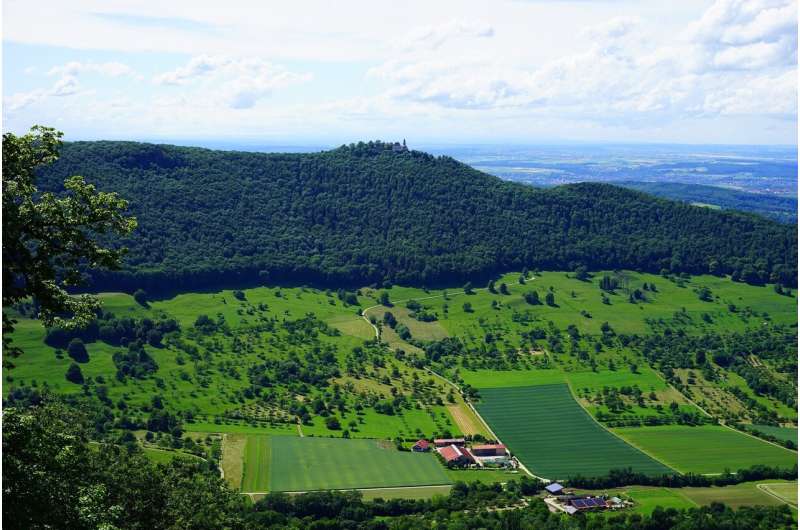This article has been reviewed according to Science X's editorial process and policies. Editors have highlighted the following attributes while ensuring the content's credibility:
fact-checked
proofread
Governments should stop converting land use, says UN scientist

Governments need to stop allowing land to be converted in the face of rising global consumption, a leading UN scientist has warned, as data shows the world is off track to meet land degradation targets.
More than 100 million hectares of healthy and productive land was lost every year between 2015 and 2019, according to a new data dashboard released by the UN Convention to Combat Desertification (UNCCD) this month, which shows land degradation accelerating across all regions of the world.
Barron Joseph Orr, chief scientist at the UNCCD, says governments must put a stop on land conversion, in order to meet global land targets.
During the COP15 biodiversity conference in 2022, 196 countries together committed to restoring 100 billion hectares of land by 2030.
"But the reality is, that these numbers are suggesting that we will have to go full-bore on those one billion hectares of commitments and stop land conversion," he says, referring to the change of land use for production of commodities, such as through deforestation.
Land degradation—the deterioration of soils and their capacity to grow things—is a global challenge which has knock-on effects for food security, biodiversity and even climate change, hitting poor, rural communities the hardest.
"On one side, the numbers are telling us we're going in the wrong direction," Orr tells SciDev.Net, on the other "there are also numbers that suggest that we can turn this.
"But it will mean a need to translate the commitments into actions on the ground," he adds.
Mismanagement
Multiple factors lead to land degradation, but mismanagement or over-exploitation of land is a major contributor as growing demand for food, fuel, and raw materials increases pressures on natural resources.
Consumption is the underlying driver behind a lot of what we see in the landscape, Orr explains.
"The clothes we are wearing today are probably contributing to land degradation somewhere else," he says.
Eastern and Central Asia, Latin America and the Caribbean regions are experiencing the most severe degradation, says Orr, while Sub-Saharan Africa, Western and Southern Asia, Latin America and the Caribbean also experienced land degradation at rates faster than the global average.
Globally, up to 40% of land is now degraded, according to the UNCCD. However, it says the data dashboard reveals some encouraging "bright spots."
Great green wall
Investments from the Global Environment Facility, the Green Fund, and a number of multilateral development banks have started to turn global commitments into action, says Orr.
He cites as an example Africa's Great Green Wall—an initiative to increase the amount of arable land in the Sahel, the region bordering the Sahara Desert. Its aim is to restore 100 million hectares of degraded land, sequester 250 million tons of carbon, and create 10 million green jobs by 2030.
Similar initiatives are underway in southern Africa, the Central America Dry Corridor, and elsewhere around the world.
"So, the train is in the right direction," says Orr. "But now I'm going to speak frankly: it is not enough … We need to accelerate that translation of commitments into action."
The data release comes ahead of a meeting of world leaders and experts in Samarkand, Uzbekistan, on 13 November to review global progress towards land degradation neutrality.
Orr hopes to see all parties meeting in Samarkand come up with "an integrated plan that includes all elements of the landscape."
The meeting marks the mid-point to the UN COP16 biodiversity conference, which will take place in Riyadh in December 2024.
"They are going to have to think about food production, and biodiversity, and try to make the land as healthy as possible," he says.
"If land is underneath all these objectives, making it healthy can drive all of them."
Provided by SciDev.Net





















